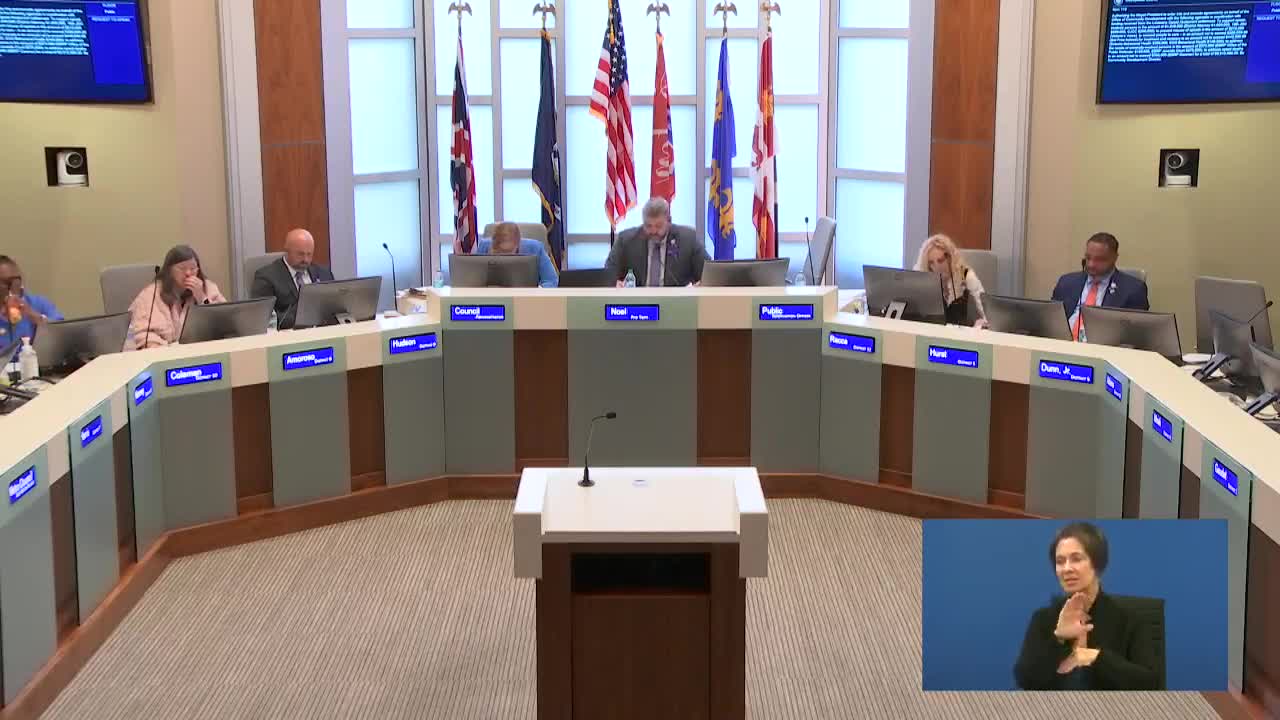Council OKs opioid-settlement and state grants totaling multimillion-dollar allocations for prevention, treatment and recovery
Get AI-powered insights, summaries, and transcripts
Subscribe
Summary
The Metro Council approved allocations from the opioid abatement settlement and a state cooperative agreement providing $1,025,000 to support youth programming, community services and violence prevention. Council and community speakers emphasized prevention, treatment access, and coordination among mayors and service providers.
The East Baton Rouge Parish Metropolitan Council approved a package of allocations from opioid-abatement settlement funds and a separate cooperative endeavor agreement with the State of Louisiana that will bring $1,025,000 to the parish for public-service programs.
Item 112 covered allocations from the opioid abatement settlement: the record lists allocations to multiple agencies (as read into the record) including $1,849,000 to the District Attorney, $1,000,000 to the Nineteenth JDC, $589,000 to CJCC, $260,000 to a pretrial diversion and recovery program, $212,000 to Victoria’s Voice for prevention/awareness, $320,020 to connect people to care, $448,500 to set free indeed for treatment and recovery, $300,000 and $148,500 (two entries) to Ecobehavioral Health for treatment and services addressing criminally involved persons, $375,000 to East Baton Rouge Parish Office of the Public Defender, $100,000 to East Baton Rouge Parish Juvenile Court, and $300,000 to the East Baton Rouge Parish Coroner, for a total read into the record of $3,512,500.20.
Item 113 is a cooperative endeavor agreement authorizing the mayor-president to accept $1,025,000 in state funding (Act 461 of the 2025 legislative session) to support youth programming, community service, food and health-care disparity programs and violence prevention programs. Senator Barrow addressed the council and characterized the award as the third consecutive year she has appropriated funds to the city, noting she directed the funds to multiple council districts and asked council members to identify district projects.
Speakers at the meeting included Senator Barrow; Kelly Miles (Office of Community Development and a lead on the opioid response in the record); mayors and municipal representatives who said they are coordinating on prevention and outreach; Victoria’s Voice Foundation and other community providers; Dr. Jacqueline Mims and other treatment and court program representatives who described treatment and diversion work; Chris Kosanka of CJCC describing a pretrial diversion and recovery program; and councilmembers who asked procedural and oversight questions.
Councilmembers asked how federal and settlement funds are tracked and monitored. Human Development and Services staff explained scope-of-work and budgeting requirements for federal Ryan White funds earlier in the meeting and community development staff explained that opioid-settlement funds are being managed through the Office of Community Development to retain administrative percentages locally. Staff said the settlement funding stream is expected to continue across multiple years depending on settlements and that $3,000,000 was expected in a future distribution.
A motion by Councilwoman Coleman, seconded by Councilman Kenny, approved item 113. A separate motion approved item 112; the chair called the motions carried. Councilmembers and invited mayors and service providers emphasized coordinated prevention, treatment access, data-driven response to local overdose spikes, and outreach to affected neighborhoods. Several speakers asked council members to visit outreach and overdose-response efforts in the field.
